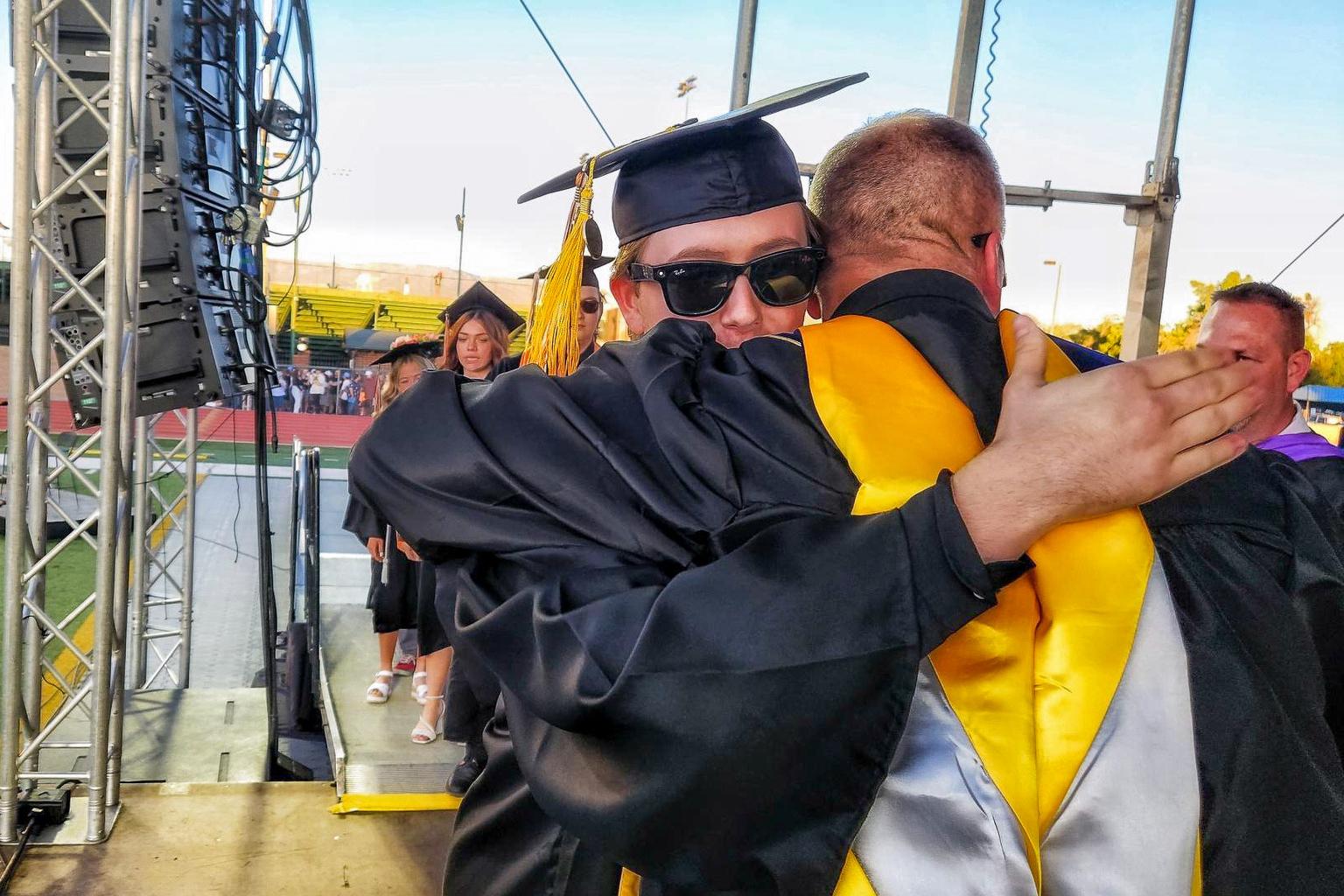
The high school graduating class of 2024 is special. They started their freshman year during the beginning of the COVID-19 pandemic in 2020. CPR education reporter Jenny Brundin talked to several graduates across Colorado about how the pandemic impacted their lives and schooling – and what they learned about themselves.
Imagine starting high school. No tour. No assembly. No meeting new friends.
“I started high school on my couch in my basement,” said Megan, a graduate of Rocky Mountain High School in Fort Collins.
That’s how it was for thousands in the class of 2024.
“It was really lonely and that led to further anxieties.”
Megan’s family was in the high-risk category during COVID-19. That ramped up her anxiety even more. She didn’t connect with her peers.
“I just kind of stayed in the corner and the only way I was connecting with people was by playing Minecraft with a friend from California.”
Her classmate Trinity remembers being asked in the middle of the pandemic the age-old question for high schoolers: What are you going to be when you grow up? Trinity had no idea – and ways to figure it out, like job shadowing, wasn’t an option.
“It's like you lost your opportunities to look at other jobs and go see how they work and all of that until I would say junior year.”
There were other challenges
“I didn't know any English,” said Jared, 17, who graduated from DSST Cole in Denver. He came to the U.S. in 8th grade where he hoped to learn English, and then — bam — he was online by March and for 9th grade.
“It was harder to learn it in my house so it makes my high school experience even harder.”
He wasn’t the only one who wasn’t a fan of online learning. Megan said she likes science and art and was looking forward to cool biology labs and working with lab partners. Instead, it was just a book and a screen with black boxes. The same thing in art. She took a 3-D design class.
“We basically just got a bag of clay and took it home and had to do our assignments that way. Honestly, not my favorite art class … It’s just not the same online. The connection and the hands-on activities are more what makes school fun.”
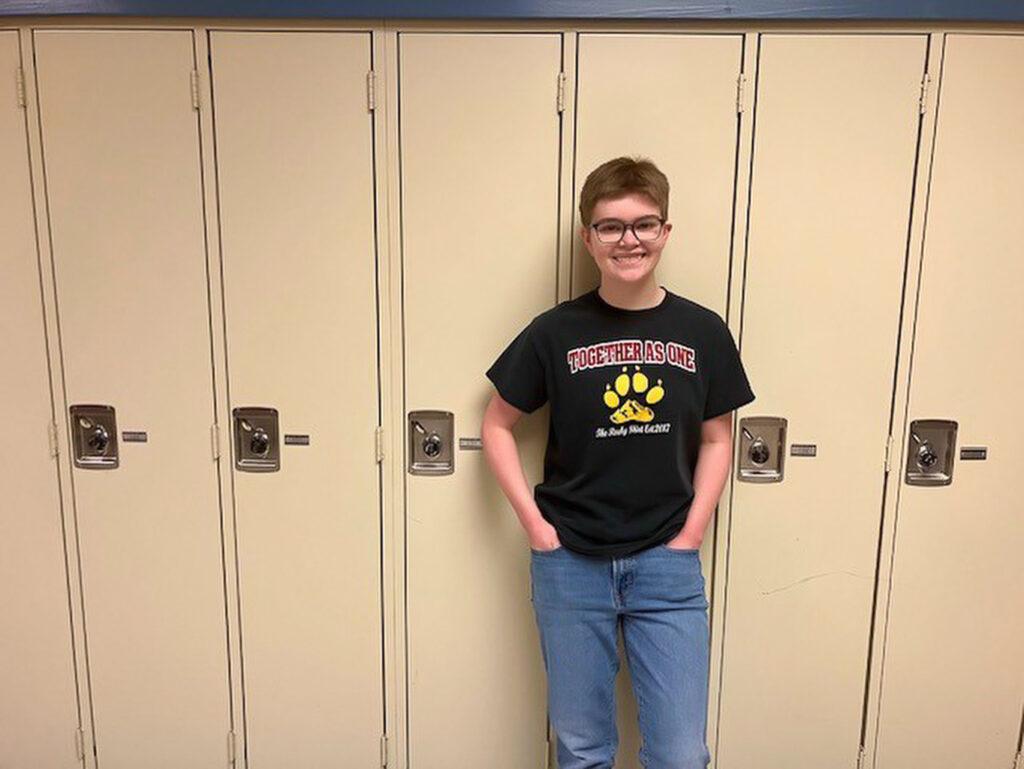
Thinking back four years ago seems like an eternity for these seniors. Jamison was 15. He’d spent his younger years listening to his dad, Justin Whiteford, a veteran teacher at Grand Junction High, talking about what an amazing experience he’d have in high school.
Instead, Jamison spent the beginning of high school alone inside his bedroom staring at a screen.
“I was confused, and I didn’t know what was going on,” Jamison said.
His father was going through something similar, teaching a class at the same school virtually in the other room.
“He’s in the class and he’s in the next room from you,” said Whitehead. “And so, you’re thinking, ‘This is sort of surreal.’ ”
Jamison remembers he didn’t like being online. Even though schools like Jared’s had a rule to show your face online, Jared explained that “nobody would follow those directions.”
His classmate Micah, 18, said there was a lot of ‘ghosting,’ when the teacher called on a student and there was no response from the black box.
“It’s just like awkward,” said Micah, laughing at how crazy it all was.
Basketball in those darn masks
Amanda, 18, didn’t have to experience too much online school because her graduating class was only 15 students. Lone Star High School sits in the middle of a cornfield outside of Otis in the northeastern part of the state, so everyone was back in class, with masks, pretty quickly. But Amanda felt the pandemic in other areas — especially in sports, a big part of rural schools.
Dance was the first casualty. There were no recitals or competitions. Then there were the masks for basketball and volleyball.
“Oh, it was rough, so rough,” Amanda laughs. “Playing sports with masks on was crazy and kind of awful. We could get a technical if we didn't have our mask above our nose.”
They’d be barreling down the stretch and the mask would just fall down.
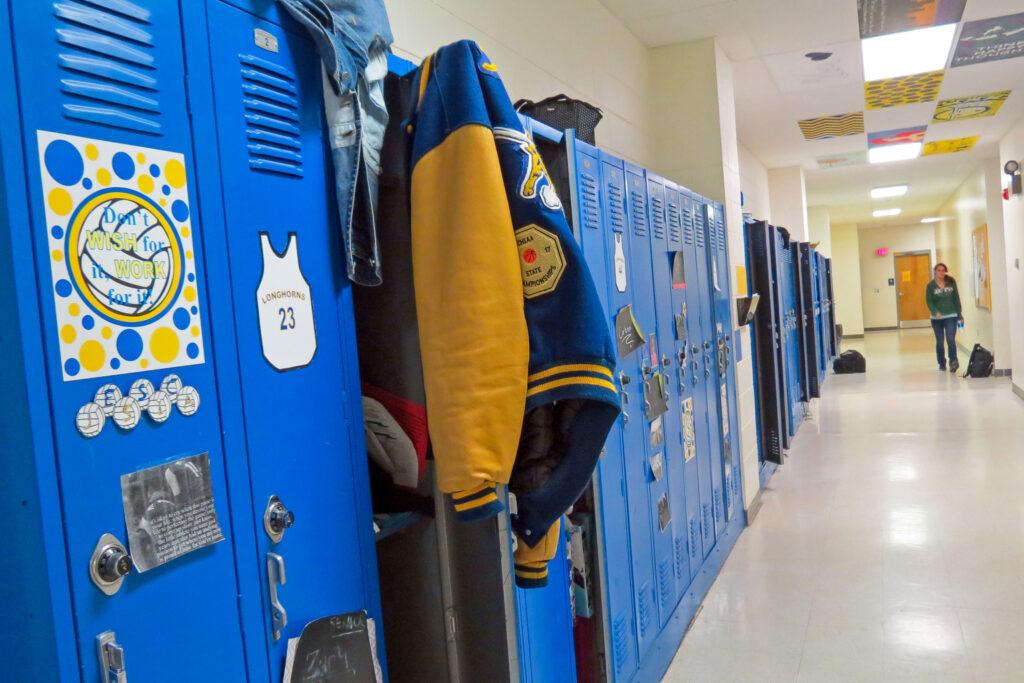
But it was the little things Amanda missed. No high-fives before and after games. No quick informal prayer with some teammates. Oddly, though, Amanda said the pandemic brought her closer to kids in other districts.
“I don't know if I would have been as close if COVID didn't hit because we were always talking about how we wish we could have prayed together or could have high-fived. We would always bond over that and we just got talking.”
For other students, returning in person was weird, hard but ultimately great
For Ohvion, 17, who graduated from DSST Cole in Denver, going back “was like ‘whoa' … it was kind of nerve-wracking.”
Once she got over her nerves, however, real life beat online hands down.
“It kind of made me really appreciate the moments in high school of just being able to communicate face to face … be with your friends and laugh and you’re together … it kind of just feels more genuine and more happy.”
Jamison recalls having that strange sensation where you imagine what someone looks like having just heard their voice for so long. Then when he actually saw what people looked like, he felt like he was at a whole new school. His whole view on school changed.
“I appreciate it. I come back my sophomore year, and I’m excited to learn.”
Micah, also from DSST Cole in Denver, said it’s kind of easy not to remember what you have until it’s gone.
“I didn't realize how good school was. It was kind of a big turning point.”
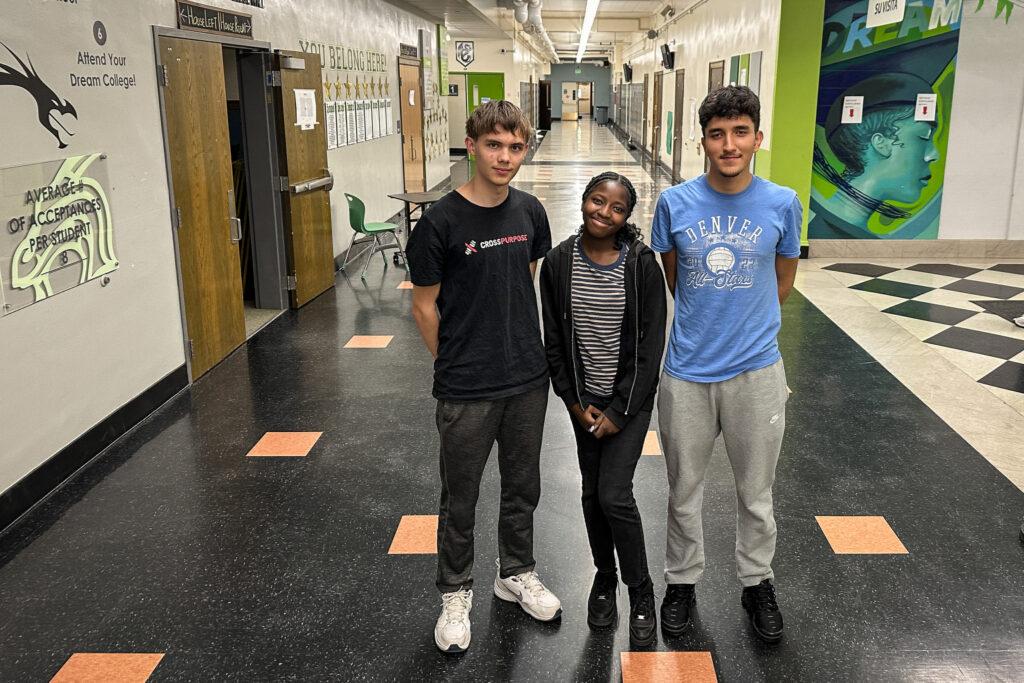
But sophomore year for others, was still overwhelming.
Megan, with high-risk family members at home, found herself overly focusing on the kid who would wear his mask under his chin in class.
“I was spending my energy worrying about him and how he was maybe going to spread something to everyone versus actually focusing on the lessons that the teacher was teaching.”
And academics were starting to really ramp up.
“I was feeling scared,” said Jared, who was still mastering English at DSST Cole. “I didn’t expect that kind of work … I was expecting the same as my freshman year because it wasn’t.”
With all the data on how far behind kids were, junior year was even harder than usual. Micah said because of the pandemic, his class didn’t have the same intensity building up to that grade as other classes did.
But the Class of 2024 did it. They pushed through and learned a lot of lessons along the way
The students seem amazed at where they were four years ago compared to now. There is the social development, which they pretty much had to stumble through on their own initially.
“Just seeing how I am socially now and being able to speak out more … it makes me proud,” said Ohvion, who is also proud she maintained her grades.
Megan, who was isolated in her basement for so long, eventually joined the drama club and began building sets for theater productions, something that wasn’t possible during the pandemic.
“I'm impressed with myself for being able to go and connect with people in that way. I've made some really good friends and I'm very glad that I pushed myself to do that even though it was scary.”
She took some college classes in high school and did well, something she thought she wasn’t going to be able to handle. Another lesson learned? Now, whenever Megan is sick, but not sick enough to stay home, she wears a mask. She wishes that had been a bigger COVID takeaway for others.
Trinity learned how to juggle not getting sick and learning at the same time – and how to navigate big problems.
“I did not know how to do that whatsoever!” she laughed. “But the pandemic made me see that I should learn how to take a different route when there’s things happening, when it’s out of your control.”
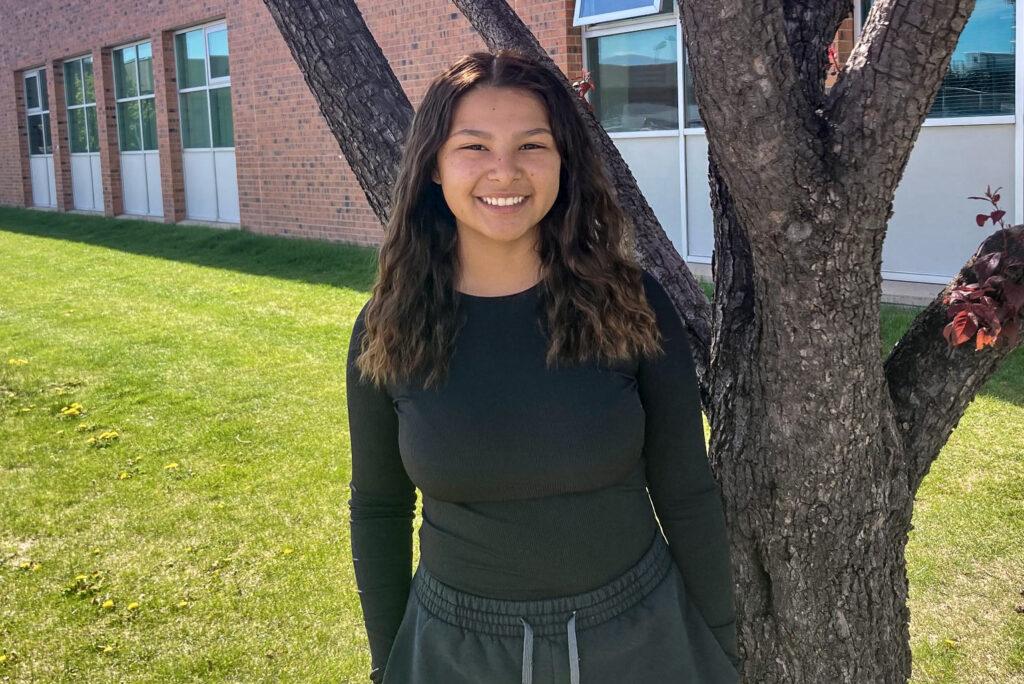
Back on the northeastern plains, Amanda is thankful for all the extra things her small school did to help students. She could call up a teacher any time. To help kids catch up academically, the district installed Wi-Fi for the long school bus rides, with a teacher on the other end answering questions. Amanda said she didn’t have a mentor or role model in her early years of high school so her goal was to be that person for others.
At her graduation ceremony celebrating her small class, Amanda realized she accomplished that goal.
“All these freshmen, sophomores, even 8th graders came up to me and told me how much they're going to miss me and how much of an impact I made in their lives and even their parents. It just means so much to me because that's just what I wanted to do is be a positive impact.”
Jared, whose English is pretty great now, said the lesson he learned is simple.
“Appreciate the moment right now.”
Jamison said COVID brought him and his father, who learned and taught in neighboring rooms, closer.
“It takes the tough times to bring you closer,” Jamison said. “And that's what COVID did. I'm so glad I did it with my Dad. He’s been great to me.”
“It's something when he's older, we'll look back and say we did it together,” said his dad. “We had to rely on each other, both a teacher and a student, to get through that pandemic.”
Whiteford, who has seen 27 years of graduation classes, said the Class of 2024 is special.
“It was a powerful thing to have these kids come in so harsh and under such conditions and be frightened and nervous ... we (as teachers) felt the anxiety … to then come out of it like a phoenix and you see them notice now there's brighter days,” he said. “You can see it in this class. They got that grit. They weathered this and they learned resilience.”









